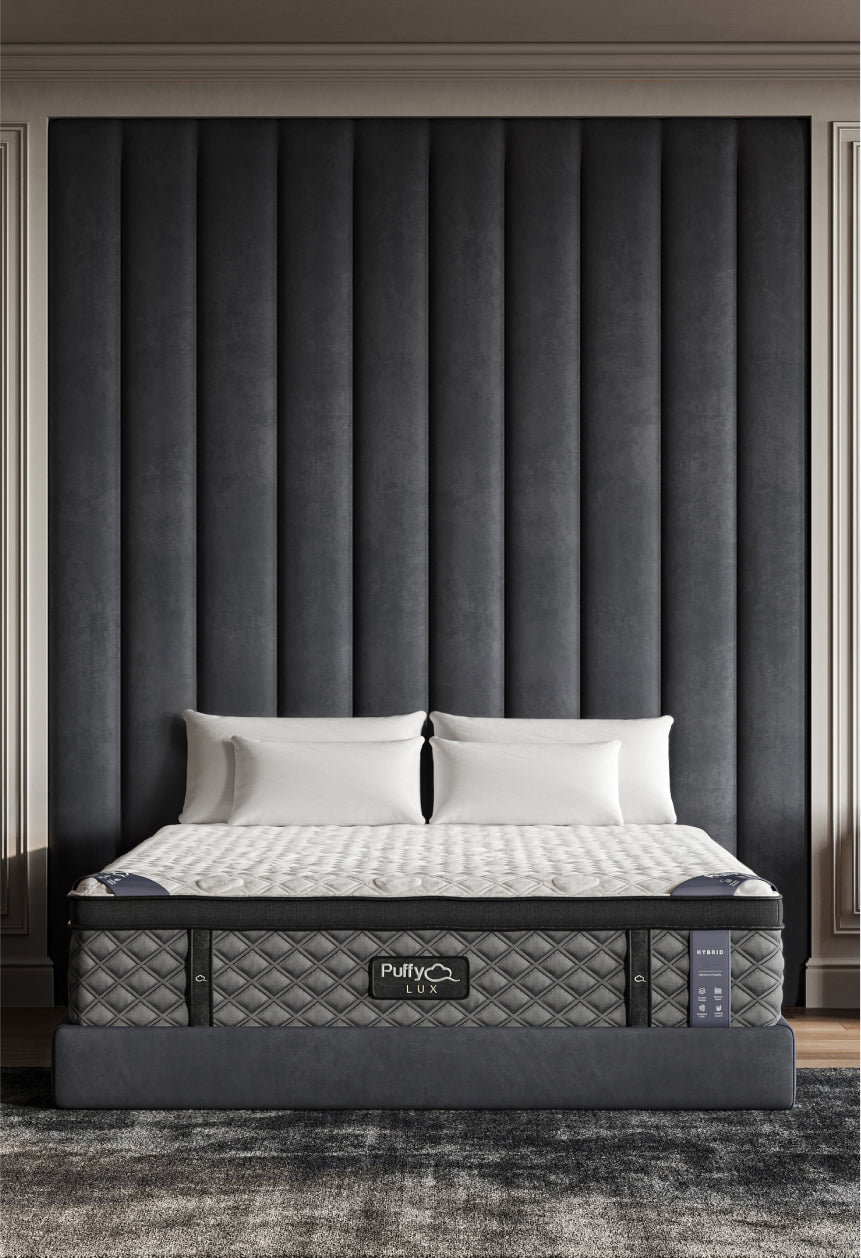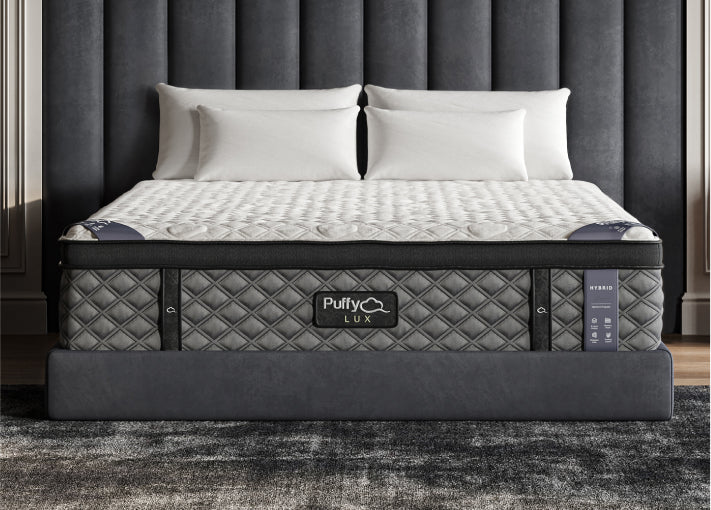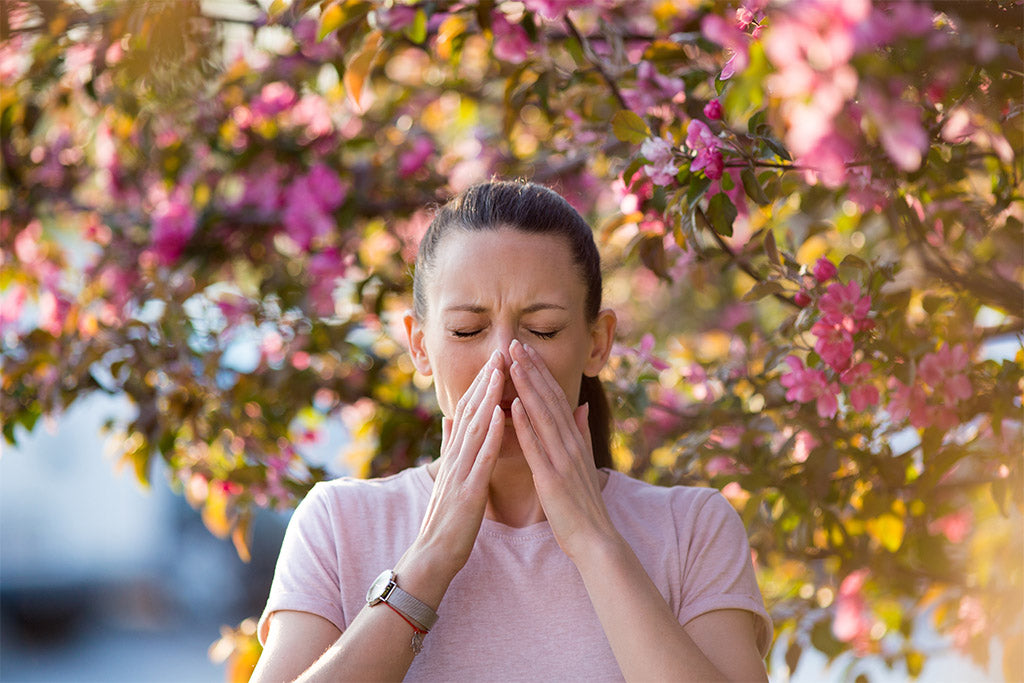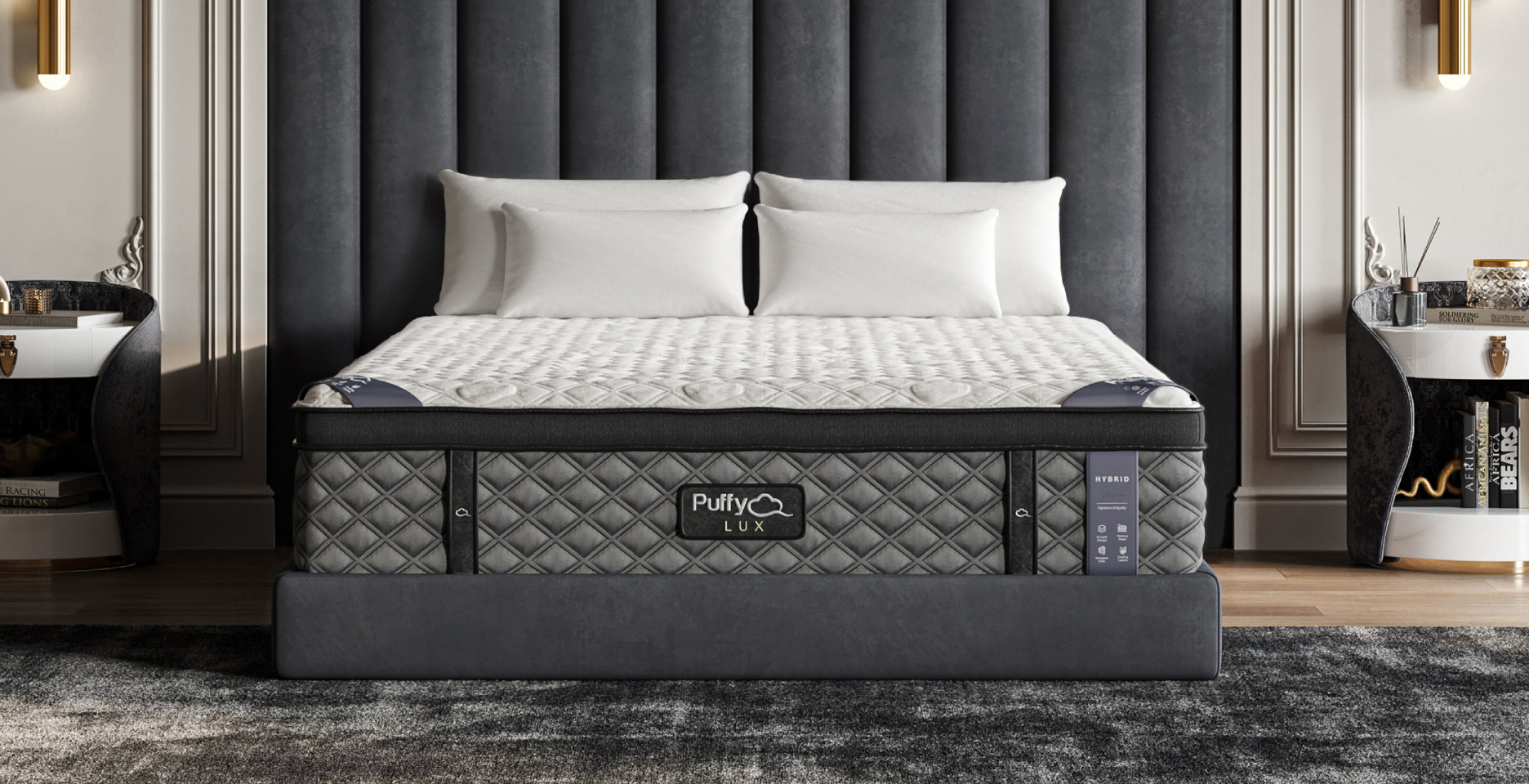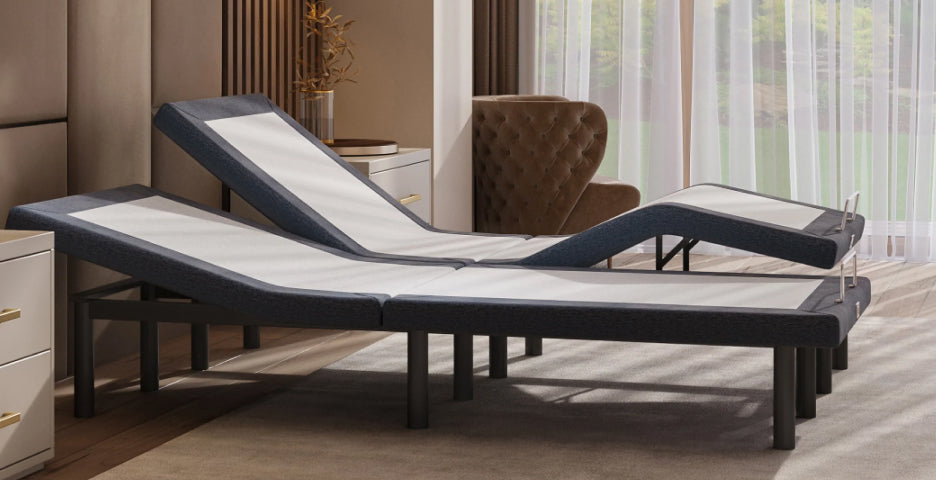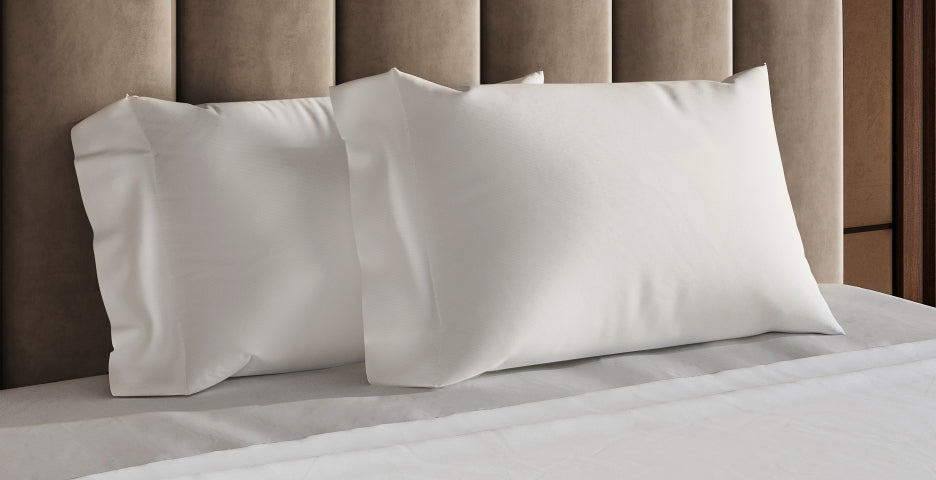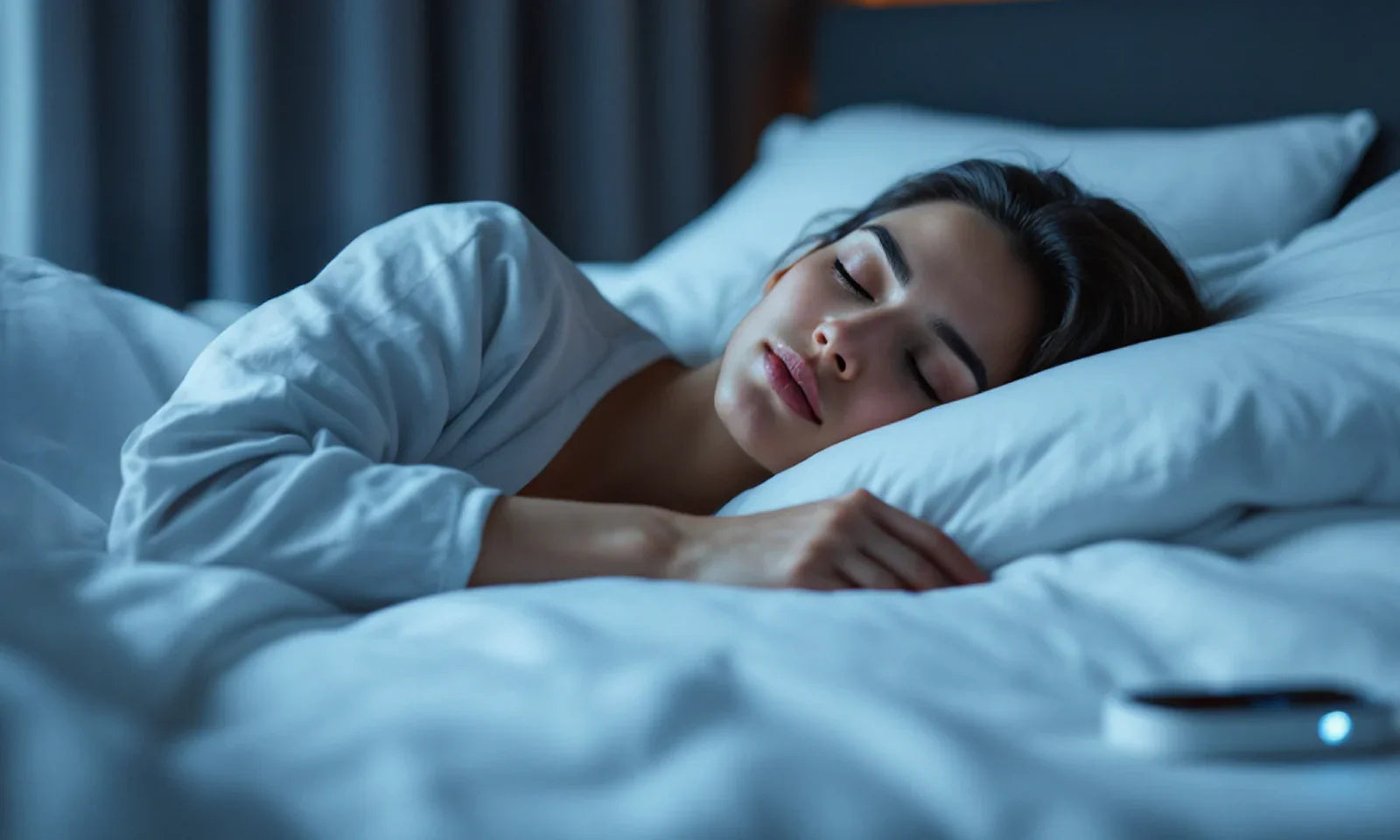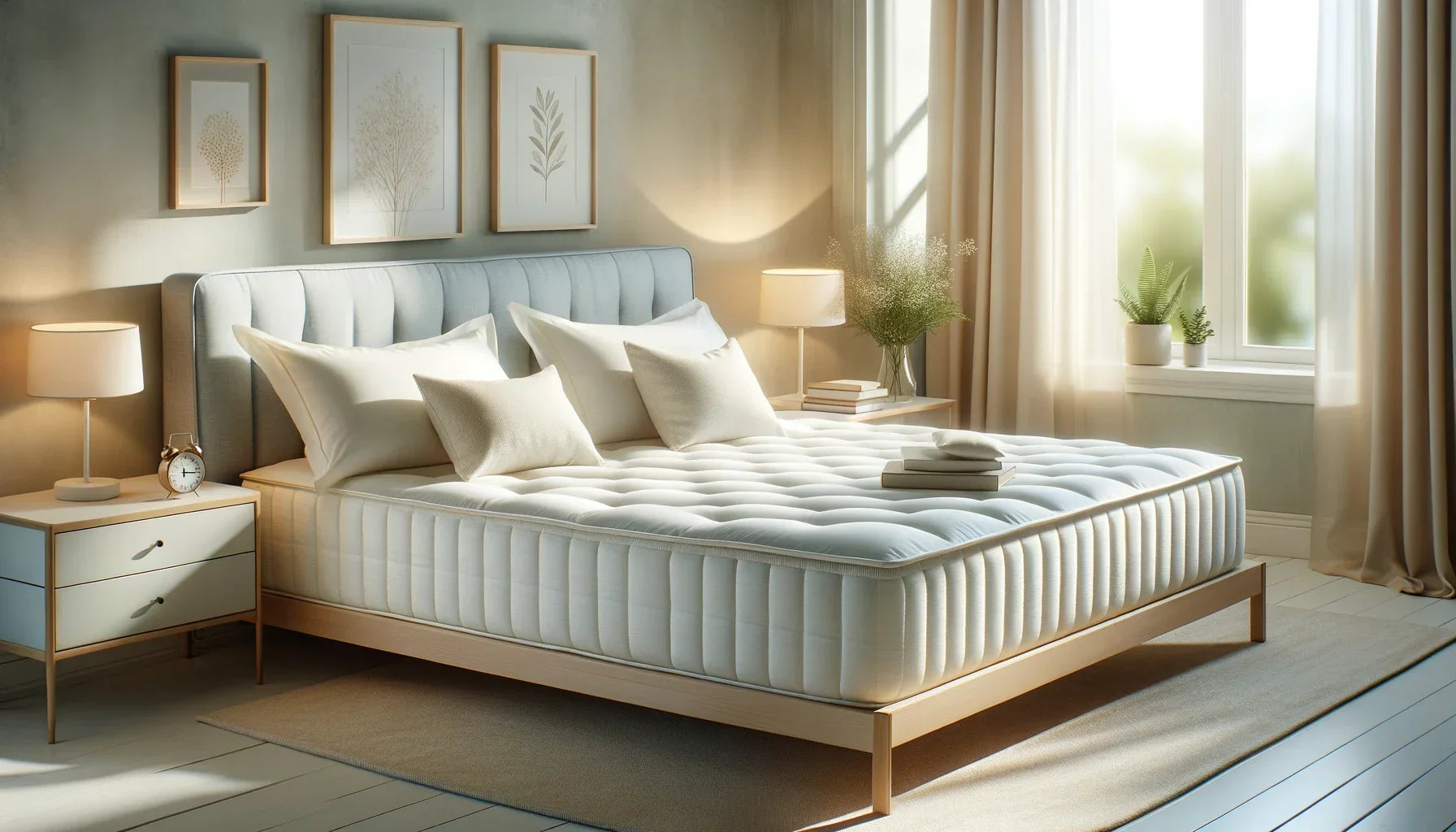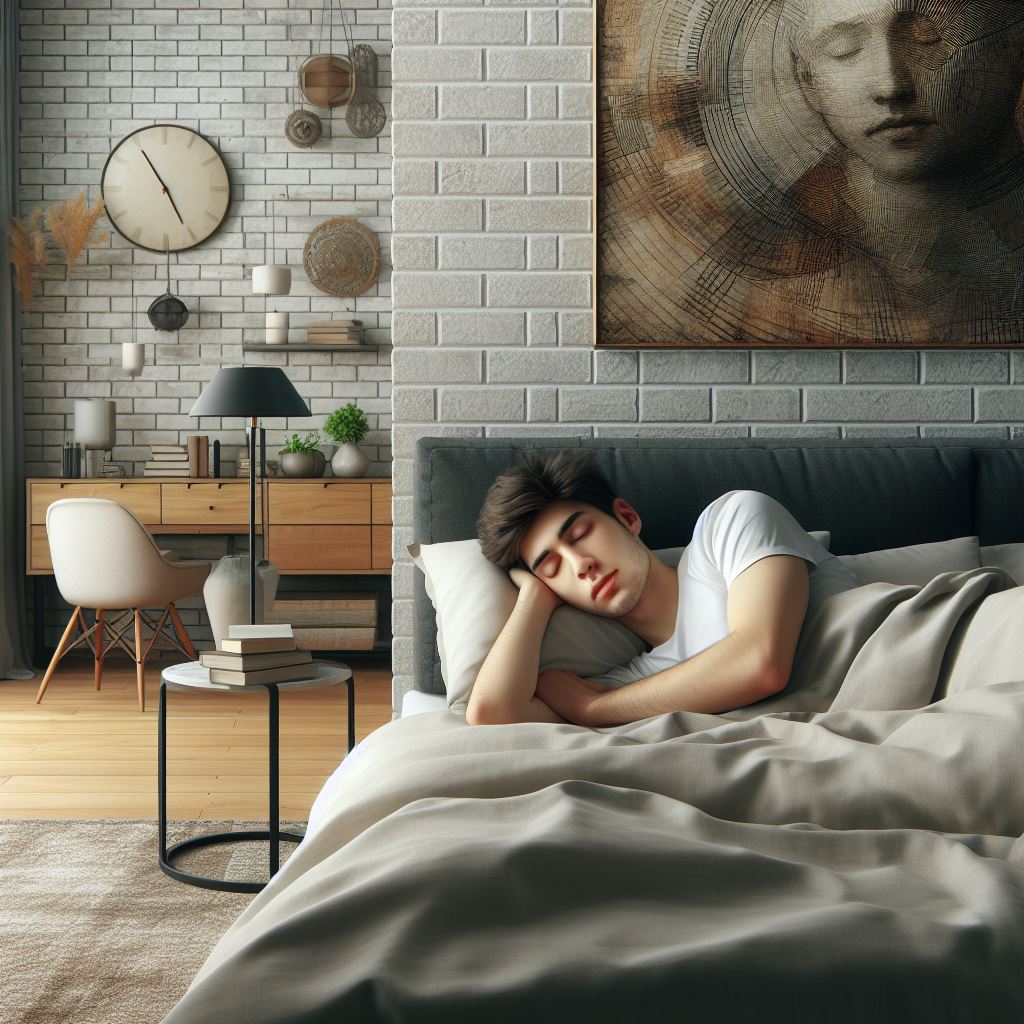Springtime has its ups and downs. The sun is shining, and the flowers are blooming, but spring is also notorious for being synonymous with allergy season. When you think of allergies, an itchy throat, constant sneezing, and a runny nose might be the common allergy symptoms that come to mind. But can allergies make you tired, too?
Unfortunately, the answer is yes. Allergic rhinitis, also known as hay fever, roughly affects 60 million people in the U.S. Here, we’ll take a deeper look at how allergies cause fatigue, other symptoms, and tips for creating an allergy-free bedroom environment.
What Are Allergies?
Allergies occur when your immune system has an exaggerated reaction to a triggering substance, such as pollen, dust mites, pet dander, or even certain foods. These triggers are known as allergens, and they’re not inherently harmful, but your body might have an adverse reaction to them.
When you’re exposed to an allergen or any harmful substance, your body produces antibodies called immunoglobulin E (IgE) in response. The role of antibodies is to expunge antigens or the substances your body doesn’t recognize.
In the case of allergies, the antibodies essentially send a message to your cells to block the allergen. These cells then release histamine, a chemical that causes common allergy symptoms, such as headaches, blocked sinuses, fatigue, and more.
Though spring is commonly considered allergy season, there are actually two types of allergies — seasonal and perennial. As the name suggests, seasonal allergies are only present during certain months and most commonly pop up during spring, summer, and early fall. Perennial allergies, on the other hand, are present year-round and occur at any point. Perennial allergies typically have different triggers than seasonal allergies and can be caused by dust, perfumes, detergents, smoke, or washing powder.
Allergic reactions are commonly treated with either allergy medications or allergy shots. Some allergy medications are commonly found over the counter, but if your symptoms are severe, it’s advisable to consult a doctor and receive a prescription for allergy relief. Allergy shots, on the other hand, are administered every few years to reduce the frequency of allergy attacks and manage the symptoms.
Understanding Allergy Symptoms
Allergy symptoms might range from being mildly annoying to life-threatening, depending on the trigger and the way your body reacts to the allergen. Some of the most common allergy symptoms include:
- Stuffy or runny nose
- Itchy throat, mouth, or ears
- Sneezing
- Watery eyes
- Wheezing
- Cough
- Hives
- Inflammation
However, an allergy can also be accompanied by some unexpected symptoms, such as fatigue, nosebleeds, loss of taste or smell, and sinus headaches.
Why Can Allergies Make You Tired?

The main reason why your allergies could be making you tired is because they can get worse at night, making it challenging to get a good night’s rest. A stuffy nose, pounding headache, and relentless coughing are a recipe for disrupted sleep.
Additionally, the histamines that your cells release in response to an allergen can also exacerbate tiredness because your body is working hard to block a harmful substance. The allergy fatigue you experience is similar to the exhaustion you feel when you have a cold or flu. Falling sick can be draining enough, but when your body works overtime to ward off the viruses and bacteria, it can often leave you feeling worse for wear.
What’s worse is that treating allergies with medication isn’t always as easy as popping a pill. Some allergy medications or antihistamines are known for causing side effects, such as drowsiness and lack of energy, which can aggravate daytime fatigue and cause excessive tiredness.
The tiredness that arises as a result of allergies can also cause brain fog. Put simply, brain fog is a fuzzy-headed feeling that can make it difficult to focus on everyday tasks. In fact, research has found that allergy fatigue can have a significant impact on the quality of life and that children with untreated allergies performed worse in school than others.
Why Do Allergies Get Worse At Night?
If you find yourself battling an annoying combination of sniffles and congestion every time you get into bed, you’re not alone. Many people find that their allergy symptoms seem to get worse at night, causing even more fatigue. Here are some reasons why.
1. Lying down can make your allergies worse
When you lie down, everything that’s in your nose travels to the back of your throat. This can trigger coughing and wheezing and make it tougher to breathe at night. The best way to ease some of the discomfort associated with lying down and the worsening allergy symptoms is to prop your head up with a few pillows.
2. You carried pollen with you
Pollen is one of the major allergy culprits and is especially prevalent around springtime. Pollen is essentially a fine powder created by certain plants and travels through the air because of wind. Though it’s commonly found outside, your allergies might feel worse at night because pollen has gotten into your bedroom, either through your clothes, belongings, or hair.
Research has also shown that pollen levels in some types of plants tend to rise around nighttime. To ensure you enjoy an uninterrupted night’s sleep and find allergy relief, it’s essential to put your clothes in the wash, take a shower as soon as you get home, and keep your bedroom windows closed.
3. Your bedroom contains mold or dust mites
If your allergies seem to get worse every night, then the chances are that your bedroom isn’t conducive to your health. Dust mites and mold are two common triggers of allergies, and they can both thrive in your bedroom.
While dust mites cling to your mattress, pillows, rugs, and duvets, mold grows in damp environments. Though mold is typically found in bathrooms or kitchens it’s not uncommon for them to grow in your bedroom, especially if you live in a humid place.
Combating dust mites and mold means taking extra care of your bedroom. Consider investing in hypoallergenic sheets, mattress protectors, and pillows to ward off the dust mites. To ensure mold stays out of your bedroom, one tip is to leave some space between your mattress and the wall. This can aid in better airflow and won’t trap moisture.
Aside from that, it’s also essential to clean your room regularly and improve ventilation with the help of air conditioning or a dehumidifier.
4. Your pet stays in your bed
Pet dander is another main allergy trigger that can be harmful to your health. Even if your pet doesn’t necessarily sleep in your bed, it’s essential to try and keep them out of your bedroom entirely. Pet dander can easily stick to clothing and bedding, triggering allergy symptoms at night.
As tough as it might be to do, the best way to minimize your exposure to dander is to ensure your bedroom is off-limits to your pet.
Much like dust mites, investing in hypoallergenic bedding can also ease some of your allergy symptoms at night and help you lock in some much-needed shut-eye to prevent daytime fatigue.
How Does An Allergic Reaction Impact Sleep?

We’ve established two things: Allergic reactions can make you tired, and they do, in fact, get worse at night for several different reasons. But how exactly does an allergic response disrupt sleep?
Experiencing an allergic reaction can trigger several issues, such as insomnia, low sleep quality, restless sleep, and increased risk for sleep apnea and snoring. Typically, the severity of your allergy symptoms is connected to sleep. If your allergy symptoms get worse, the sleep problems you face might also be more profound. Because of either one or a combination of these issues, you’re also likely to experience higher levels of fatigue during the day.
Research conducted on participants who suffered from allergic rhinitis and allergic asthma found that both groups had trouble falling asleep and reported feeling unsatisfied with the quality of their sleep. Those suffering from allergic rhinitis and allergic asthma also said that their daytime functioning was impacted due to fatigue, and they struggled to focus on work and other daily tasks.
It’s also interesting to note that 67.1% of respondents said their allergy trigger was pollen, and 48.1% also said they experienced the worst allergy symptoms during springtime. This means it’s essential to take extra precautions during spring to ensure your sleep isn’t adversely impacted so you can fight allergy fatigue.
Tips For Creating An Allergy-Proof Bedroom
Over-the-counter medications and allergy shots can undoubtedly be effective at treating an allergic reaction, but it’s also essential to eliminate allergens from your bedroom. Here are some of our top tips for optimizing your bedroom for allergy relief.
1. Invest in a hypoallergenic mattress
Dust mites and pet dander basically live in the crevices of your mattress, which means they might go unnoticed until you’re hit with an allergy attack. This is where a hypoallergenic mattress comes in. When picking one, it’s essential to consider a few different factors.
In addition to being the most comfortable mattress, your new bed should ideally have a washable cover. Washing your mattress cover regularly is one of the best ways to protect your health and prevent the buildup of dust mites and dander.
When investing in a new mattress, be sure to pick one that’s also best for sleep. A hybrid mattress is an ideal choice if you’re looking for that perfect level of support and comfort. Essentially, hybrid mattresses are a cross between traditional innerspring mattresses and memory foam, which means they deliver the right amount of stability and cushioning comfort.
In case you’re not in the market for a new mattress, consider supplementing your current one with a hypoallergenic mattress protector and sheets so that you can keep the allergens at bay.
2. Clean regularly
There’s no way around it: The trick to fighting allergy-related fatigue and general discomfort is cleaning your room. To protect yourself from a reaction, consider sweeping or vacuuming at least twice a week.
Along with cleaning your floor, consider decluttering your room, as well. Not only is it unpleasant visually, but clutter can actually accumulate dust and trap allergens without your knowledge. But it’s not just your bedroom that needs to be cleaned.
Dust, dander, and mold can be anywhere in your house, and it could be impacting your health. As a result, deep cleaning is essential for every room in your home. Pay special attention to your kitchen and bathroom because mold grows in damp and humid environments.
3. Wash your bedding

Wondering how often you should wash your bedding? Probably more often than you might think.
Understandably, sheets and pillowcases top the list because they should be washed and changed once a week. This is because they accumulate dirt, dust mites, and dead skin cells. In case you suffer from severe allergies, consider washing your sheets and pillowcases more frequently to limit your exposure to dust.
Your mattress and pillows should be cleaned every 3 months, while other bedding, such as your mattress protector, should be cleaned every 2 months. To keep your bedding clean and allergy-free in between washes, be sure to shower before bed, keep pets away, and avoid eating or drinking anything that may spill.
4. Increase ventilation
Ramping up efforts to increase ventilation in your room can seem like a double-edged sword, especially when the easiest way to let in some fresh air is to open the windows. But open windows are also an invitation for allergens to get into your room. Fortunately, there are other ways to increase ventilation.
Mechanical home ventilation systems are a great choice for purifying the air and achieving uniform ventilation, either throughout the house or just in your room. You can also opt for air purifiers and dehumidifiers to clean the air in your room and ward off any pesky allergens that might be triggering your fatigue. Air conditioning can also help because dust mites are unable to breed in cold temperatures.
5. Take care of your clothes
If you suffer from seasonal allergies, it’s especially important to put your clothes in the laundry room as soon as you come home. This way, pollen that might be clinging to your clothes won’t have a chance to enter your bedroom. But caring for your clothes doesn’t end there.
During seasons when allergies are most common, it’s recommended to avoid air-drying clothes so that it doesn’t attract pollen. Instead, the best option is to use a dryer if you have access to one.
Allergies can be unpleasant, especially when they start to interfere with your daily routine and disrupt the quality of your sleep. However, ensuring that your bedroom is an allergy-free environment is one way to help you manage your allergy.
If you experience a severe or persistent allergic reaction, consult a doctor for medical help.
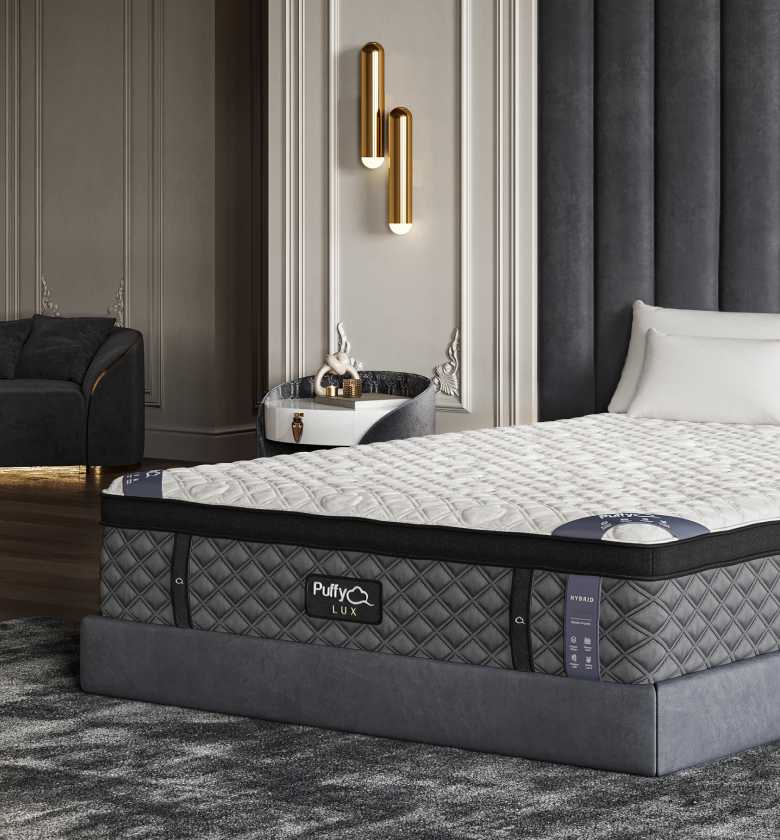
$1,350 in savings
Unlock your ultimate sleep solution with Puffy.
Explore our award-winning Puffy mattress collection with these extra luxury benefits:
- Award-winning comfort.
- Lifetime warranty.
- 101-night sleep trial.
- Free shipping and returns.
- 100% made in USA.
Disclaimer. We love sleep and we want you to get the best sleep possible. But we do not provide medical advice. This blog is intended for informational purposes only. It is not a substitute for professional medical info, diagnosis, or treatment. Never ignore professional medical advice in seeking treatment because of something you have read on our blog.
